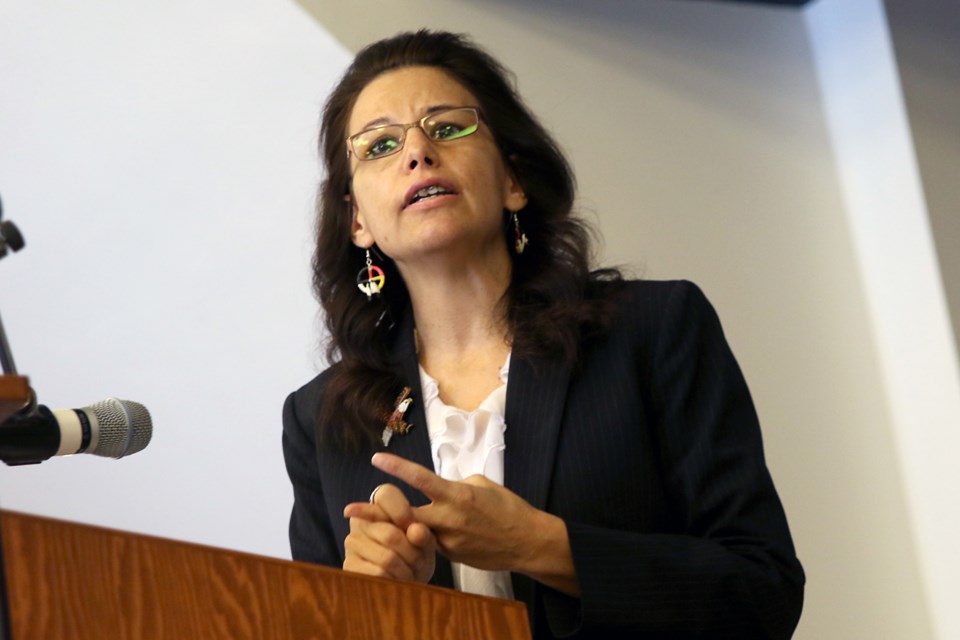THUNDER BAY - The dean of the Lakehead University law school says a new proposal for dealing with the disproportionate number of indigenous people in jail doesn't go far enough.
Angelique EagleWoman was responding to a recent study conducted for the federal government, which suggests that a national sentencing commission could be set up to issue guidelines for meting out penalties to indigenous offenders.
EagleWoman told tbnewswatch.com that the commission is "an interesting idea" but amounts to "a patchwork solution," as she's concerned that it wouldn't be properly implemented.
"By the time you get to sentencing...the person accused and the court system are to a point where there's no connection in terms of understanding what would be the best outcome," she said.
The idea for a commission comes from a study conducted by an Oxford University criminology professor. Julian Roberts proposes that a separate system for sentencing Aboriginal offenders could reduce the disproportionate number of indigenous people behind bars. Roberts concludes that a more radical approach is needed because past attempts have failed, and the Canadian justice system still relies more on custody for punishment relative to other western nations.
One option he outlines is a separate, stand-alone sentencing code for indigenous people. Sentencing principles and avenues could be tailored to indigenous communities and cultures.
The sentencing commission would be primarily a judicial body with representatives including prosecutors, defence counsel, and victims and offenders advocacy groups.
EagleWoman said the over-incarceration of indigenous people needs to be addressed "in a holistic manner," and can't be handled just as "an ongoing, complicated issue that no one can solve." She said what's required is not the patchwork fixes that have been applied to date, but rather a systemic change.
The law school dean feels there have been some important steps, such as the introduction of Gladue courts, which exclusively consider the cases of Aboriginal people. She added however, that "you hear anecdotally that even with Gladue factors being available at sentencing...the factors really aren't being followed...that unless there's this deferral into a Gladue court you really don't see rehabilitation over punitive measures."
EagleWoman advocates for an Aboriginal justice system that is culturally appropriate, "and that means indigenous judges who understand indigenous law...To me, that's what's going to make the change." She said there is "a colonial bent" to the current court system, and that "they are even unaware of how structural this is."
Describing the new proposals as one step among "a lot of baby steps that could be made," EagleWoman said she would prefer to see funding go toward Aboriginal justice systems rather than to a commission.
She also expressed concern that "these kinds of carve-outs can disadvantage indigenous peoples in the media, when people feel as if there are special rules without understanding the context." She said the deferral system in Gladue courts is much more holistic, with sentencing circles, family engagement and more appropriate rehabilitative steps.
"I don't see this (Roberts' report) as a full remedy. It could be a positive, small step," EagleWoman concluded.
(with files from The Canadian Press)
